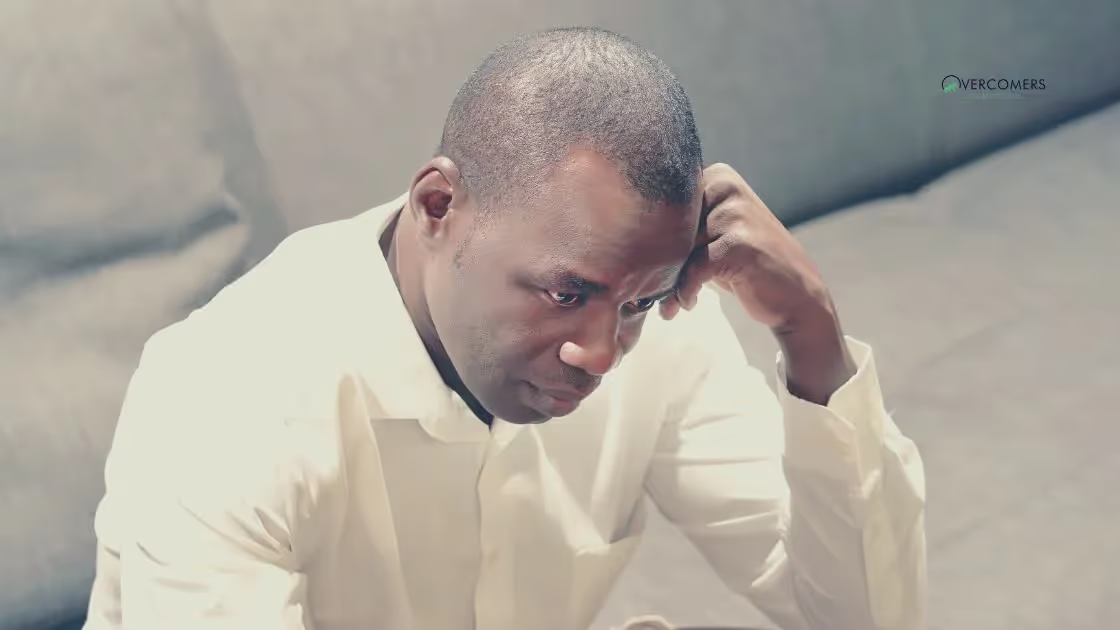Moving on after the death of a loved one doesn't mean forgetting about your loss. It means moving forward and learning to live despite the grief you have...

Moving on after the death of a loved one doesn't mean forgetting about your loss. It means moving forward and learning to live despite the grief you have experienced. It is not easy to move on from grief because it takes some time to adjust to your loss. However, there are certain signs you are ready to move on that you can look out for. One way to know if you are ready to move on is when you feel your grief no longer consumes you. Grief is a sorrowful and overwhelming experience; without any support, care, or the right grief therapy, it can consume you. Also, it is possible to develop an unhealthy obsession with the belongings of your loved one after their death because of their sentimental value.
So when you no longer feel guilty about getting rid of your loved one's belongings, it could indicate that you may be ready to heal and move on. Furthermore, when experiencing grief, it is normal to remember everything about them, from how they talk to their mannerisms. But when you realize that you do not remember them as much as you used to, you may be ready to move on. Read on to learn more about how to know if you are ready to move on:
Grief and loss are complicated and multilayered. Our experience of grief is integrated into our lives, and it is not something you can get rid of quickly. Thus, one way to know you are ready to move on is when you feel like the feelings of your grief no longer consume you. You may feel your grief no longer weighs you down when you find yourself trying to grow around your grief. That is, by attempting to reconnect with family and friends, meet new people, or even have moments when you feel happy and settled. Also, you may regain your confidence and become positive about yourself. It is possible for you to engage in negative self-talk to yourself at the start of your grief. For example, saying, "I will never be happy again" or "my life is over". But the moment you realize you have stopped negative self-talk, that is when you know your grief no longer weighs you down. Furthermore, moving on from grief may feel strange and confusing at first, but as time passes, you realize that, while your grief is still a part of you, it no longer consumes you.
After losing someone, their material belongings may have more sentimental value to you and feel more than just inanimate objects.Thus, one way to know you are ready to move on is when you develop emotional strength and feel less guilty about getting rid of your loved one's belongings. At the beginning of your grief, removing a deceased loved one's possessions may feel like you are committing a crime. The pain is usually not in getting rid of the property but in the thought of getting rid of a part of your lost loved one. You may even feel sick because it feels like throwing away all your memories with them. A vital sign you are healing from grief and ready to move on is when you can look at inanimate objects without guilt as just mere objects and not actual memories of your deceased loved one. It also feels like a weight has been lifted off your shoulder. Furthermore, holding on to the things of your deceased loved one keeps you from moving on, and it is best to let go of these possessions. Otherwise, you may end up wallowing in the past and what could have been and fail to enjoy the present.
Another way to know you are ready to move on is when you no longer remember things you thought you would never forget. After losing a loved one, there are things that you could swear you will never forget, like the sound of their voice or the way they walked or even smelt. While grieving, it may become so easy to remember everything about the deceased because you live in the past. You also remember the past easier because you feel that's when your life made sense to you. When you notice you have stopped dwelling so much on the past and have stopped remembering the little things about the deceased, that's when you can say you are healing from grief. You may realize that hours, days, and weeks go by, and you are no longer focused on the pain you feel. Furthermore, not remembering much about the deceased does not make you a bad person, and you do not have to feel guilty about it. It just means that you have moved forward.

One sign that you are ready to move on is when you feel happy despite your feelings of grief in your heart. Grief sucks the joy out of any person and finding joy in any situation while grieving might feel difficult. During grief, everything feels sad and painful. It sucks the happiness out of everyday living, and you may feel life is not worth living because of the negative thoughts that often cross your mind. When you notice that you have become happier and begun to derive joy from the littlest situations, that is a sign that you are gradually moving on. At first, you may be confused about how those brief moments of happiness happen and feel guilty about being happy. Furthermore, it is possible to be grieving and be happy at the same time. It doesn't mean that you have forgotten about the deceased. It just means that you have found a balance.
Another way you are sure you are ready to move on is when you reach the acceptance stage. You finally accept that your loved one is gone for good and never returning. You have accepted it and now understand that grief is a part of you and what it means to your life. When you get to this stage, you may feel better emotionally. You re-enter reality. You come to terms with the fact that you have a new reality, which is never seeing your loved one physically, and the only thing you have to hold on to is your memories with them. You are healing and ready to move when you realize that you will have good days where you are not extremely sad and bad days where you are, and you are okay with it. You may even start new relationships knowing your loved one cannot be replaced. Furthermore, the fact that you can now live knowing you have gone through a loss should not scare you or make you feel like you never loved the deceased. It is important to move on and be happy regardless.
Losing a loved one is sad and can lead to long-lasting feelings of grief. Everyone grieves differently, and sometimes you may require therapy for grief to live and accept your new reality. You know you are ready to move on from grieving when your grief no longer consumes you, you do not feel guilty about getting rid of your loved one's belongings, you start forgetting things you thought you would always remember, and you feel happy no matter the circumstances, and you accept that the deceased is never coming back.
https://widow411.com/signs-you-are-healing-from-grief/
https://www.evrmemories.com/knowing-when-it-s-time-to-get-rid-of-their-things
https://www.psycom.net/stages-of-grief
https://www.marriage.com/advice/relationship/first-relationship-after-being-widowed/
https://www.goodtherapy.org/blog/4-things-you-need-to-know-about-moving-on-from-grief-0623155
https://www.helpguide.org/articles/grief/coping-with-grief-and-loss.htm
If you find yourself having difficulty managing daily activities due to lingering feelings associated with grief such as sadness, anger, guilt or numbness; then it might be beneficial for you to seek professional help through our Colorado Springs Grief Counseling services. Our therapists are trained in helping clients identify their needs and goals related to grieving.
There are a few things you should avoid saying to someone who is grieving, as they can come across as insensitive or unhelpful. For example, don't tell them that it's "time to move on" or that they "should be over it by now." It's also best not to make any assumptions about how they're feeling or what they need – instead, ask them directly how you can help.
Some signs that you may be ready to move on include feeling at peace with the breakup, no longer regularly thinking about your ex, and having a renewed sense of optimism. Ultimately, only you can decide when you're ready to start dating again or take other steps toward moving on.
There are a few things you can do to help ease your pain during the holiday season. First, try to avoid triggers that may cause you to feel sad or upset. Triggers can be anything from certain songs or smells, to seeing certain people or places. If you know there will be triggers at holiday gatherings, try to arrive late or leave early if possible. You can also try to create new traditions that don't involve the triggers.
Yes, we provide supportive counseling for family members who are struggling with the loss of a loved one. Our compassionate therapists can help you gain insight into your feelings and provide constructive strategies to cope with the pain of bereavement.
Dealing with grief involves allowing yourself to experience grief, seeking support from family members or a mental health professional, and taking care of your physical health. It's also important to remember that everyone grieves differently and there's no "right" way to grieve.